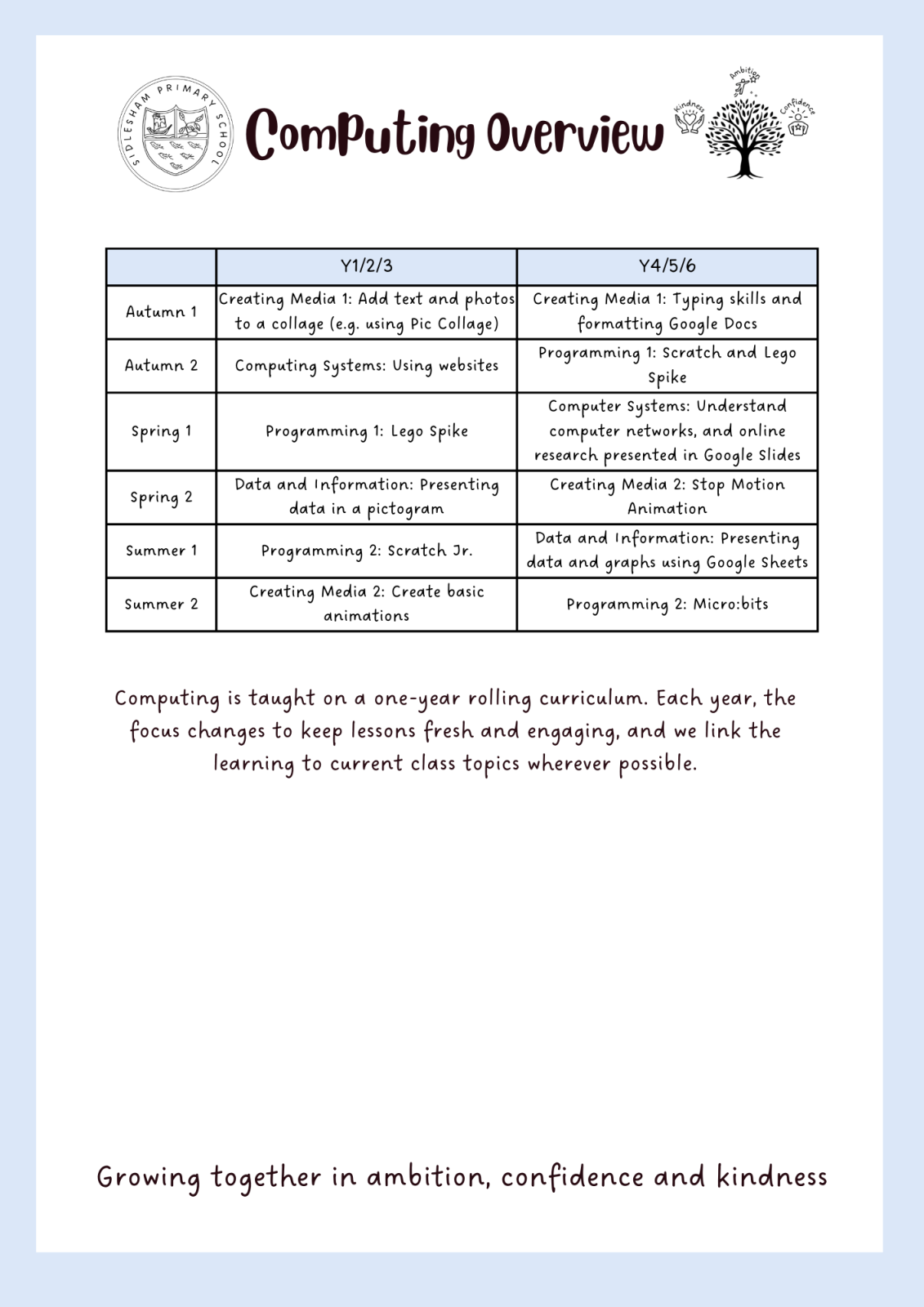Computing
Subject Overview

Intent
At Sidlesham Primary School, our Computing curriculum aims to give children the skills, knowledge and confidence to thrive in a digital world. We want pupils to understand how computing impacts their lives today and to be equipped for the future. From staying safe online to solving problems with code, our goal is that children become creative, responsible and discerning digital citizens.
We build both substantive knowledge (what computing is, how systems work, basics of programming, digital safety) and disciplinary knowledge (how to use tools effectively, to debug problems, to plan, design and evaluate computing projects). Children are encouraged to explore computing with curiosity, creativity and confidence.
Implementation
- Computing is taught across all year groups, with units designed to build on skills year-on-year.
-
Key areas include creating media, programming, data & information, computer systems and online safety.
-
Lessons follow a planned progression, so children revisit and develop skills over time—starting from basic concepts, then moving into more complex tasks like debugging, designing digital content, and evaluating their own and others’ work.
-
Practical, hands‑on tasks are central: coding with age‑appropriate tools, creating digital artefacts (such as presentations, graphics or simple games), using computational thinking to solve problems.
-
Online safety is embedded throughout: pupils learn how to behave responsibly, protect their privacy, and understand risks in different digital contexts.
Impact
By the end of Key Stage 2, children at Sidlesham will be able to:
-
Confidently use a range of digital tools and software to create, communicate and collaborate.
-
Write and debug code for simple projects, understanding basic algorithms.
-
Make informed choices about staying safe and responsible when online.
-
Reflect on their own work and that of others: they can plan improvements, test and refine their digital creations.
-
Appreciate the role of computing in everyday life and potential future careers.
Assessment is based on observing practical work, reviewing digital projects, teacher feedback and checks of pupils’ understanding. This combination allows us to track progress in knowledge, skills and digital confidence over time.
Computing Knowledge Organisers






